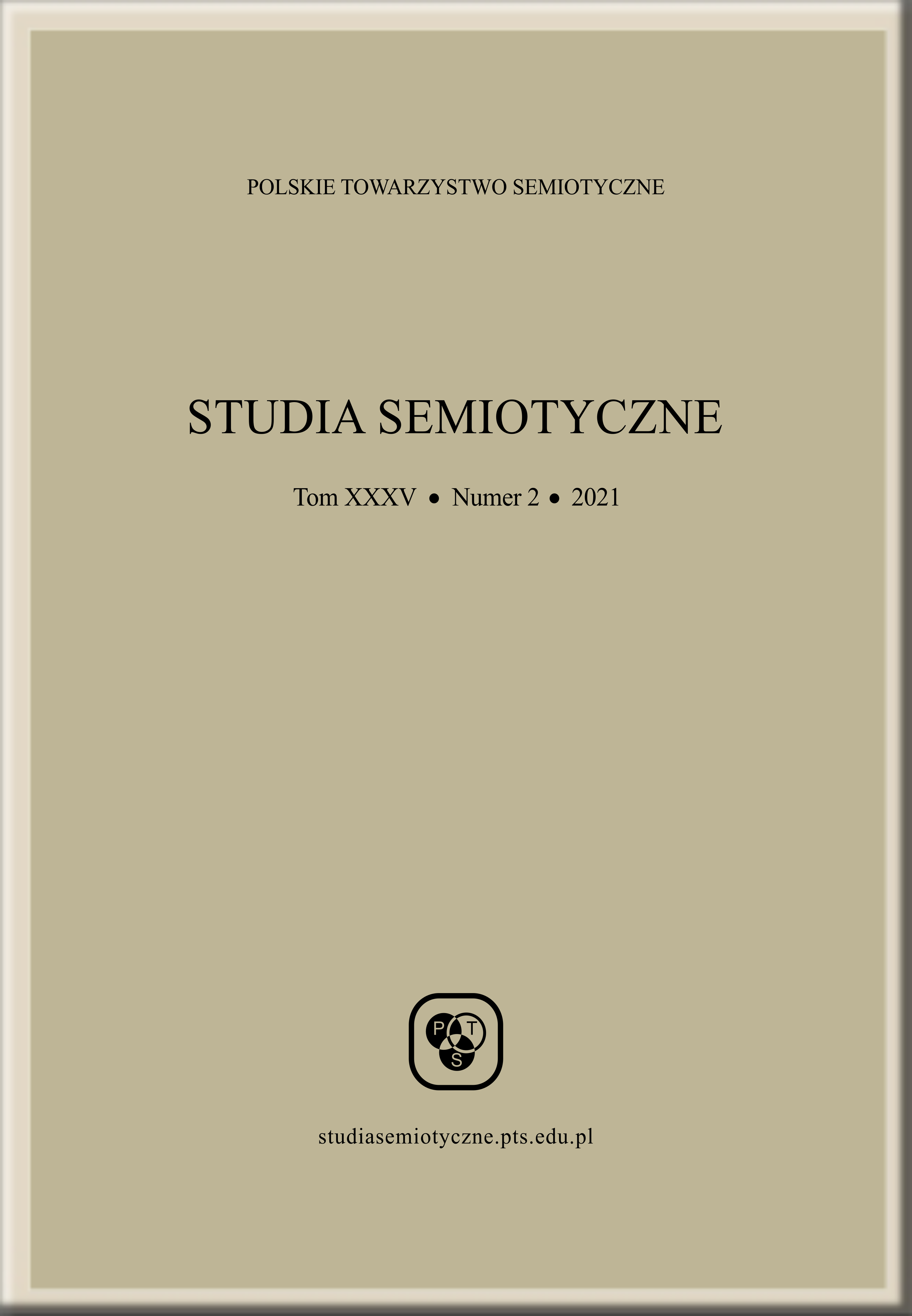Abstract
DOI: https://doi.org/10.26333/sts.xxxv2.06
In this paper, I raise the problem of dealing with counterpossible conditionals for theories of subject matter. I argue that existing accounts of subject matter need to be revised and extended to be able to a) provide reasonable (potentially non-degenerate) verdicts about what counterpossibles are about, b) explain the intuition that counterpossibles are in some sense about what would happen if the antecedent were true, and c) explain in what sense counterpossibles can be about individuals. I sketch how one could extend atom-based and way-based theories of subject matters to handle the problem. Then, I raise the problem that it might be desirable for a theory of subject matter to prevent the inference that certain counterpossibles are about the kinds of things that they seem to mention.
References
Badura, C. (2020). More Aboutness in Imagination. Journal of Philosophical Logic, 50(3), 523–547.
Baker, A. (2007). A Counter on Counterpossibles. The Reasoner, 1(2), 7–8.
Barwise, J. (1989). The Situation in Logic (Lecture Notes 17). Stanford: CSLI.
Barwise, J., Perry, J. (1983). Situations and Attitudes. Cambridge: The MIT Press.
Beall, JC. (2016). Off-Topic: A New Interpretation of Weak Kleene Logic. The Australasian Journal of Logic, 13(6), 136–142.
Bernstein, S. (2016). Omission Impossible. Philosophical Studies, 173(10), 2575–2589.
Berto, F. (2018). The Theory of Topic-Sensitive Intentional Modals. In I. Sedlár, M. Blicha (Eds.), The Logica Yearbook (pp. 31–56). College Publications.
Berto, F., French, R., Priest, G., Ripley, D. (2018). Williamson on Counterpossibles. Journal of Philosophical Logic, 47(4), 693–713.
Berto, F., Hawke, P., Hornischer, L. (2019). Foundations of Two-Component Semantics. Manuscript in preparation.
Berto, F., Jago, M. (2019). Impossible Worlds. Oxford: Oxford University Press.
Berto, F., Özgün, A. (2021). Indicative Conditionals: Probabilities and Relevance. Philosophical Studies. doi:10.1007/s11098-021-01622-3
Berto, F., Schoonen, T. (2017). Conceivability and Possibility: Some Dilemmas for Humeans. Synthese, 195(6), 2697–2715.
Brogaard, B., Salerno, J. (2013). Remarks on Counterpossibles. Synthese, 190, 639–660.
Edgington, D. (2008). Counterfactuals. Proceedings of the Aristotelian Society, 108, 1–21.
Emery, N., Hill, C. (2016). Impossible Worlds and Metaphysical Explanation: Comments on Kment’s ‘Modality and Explanatory Reasoning’. Analysis, 77(1), 134–148.
Fine, K. (1986). Analytic Implication. Notre Dame Journal of Formal Logic, 27(2), 169–179.
Fine, K. (2012). Counterfactuals Without Possible Worlds. The Journal of Philosophy, 109(3), 221–246.
Fine, K. (2016). Angellic Content. Journal of Philosophical Logic, 45, 199–226.
Fine, K. (2020). Yablo on Subject-Matter. Philosophical Studies, 177, 129–171.
Fine, K. (2021). Constructing the Impossible. In L. Walters, J. Hawthorne (Eds.), Conditionals, Paradox and Probability: Themes from the Philosophy of Dorothy Edgington (pp. 141–163). Oxford: Oxford University Press.
Gendler, T. (2000). The Puzzle of Imaginative Resistance. The Journal of Philosophy, 97(2), 55–81.
Hawke, P. (2018). Theories of Aboutness. Australasian Journal of Philosophy, 96(4), 697–723.
Jago, M. (2014). The Impossible: An Essay on Hyperintensionality. Oxford: Oxford University Press.
Kim, S. Maslen, C. (2006). Counterfactuals as Short Stories. Philosophical Studies, 129, 81–117.
Kment, B. (2006). Counterfactuals and the Analysis of Necessity. Philosophical Perspectives, 20(1), 237–302.
Kment, B. (2014). Modality and Explanatory Reasoning. Oxford: Oxford University Press.
Kment, B. (2016). Replies to Dorr, Emery and Hill and Yablo. Analysis, 77(1), 166–188.
Kocurek, A. W. (2018). Counteridenticals. The Philosophical Review, 127(3), 323–369.
Kocurek, A. W., Jerzak, E. J. (2021). Counterlogicals as Counterconventionals. Journal of Philosophical Logic, 50(4), 673–704.
Kung, P. (2014). You Really Do Imagine It: Against Error Theories of Imagination. Noûs, 50(1), 90–120.
Leitgeb, H. (2018). HYPE: A System of Hyperintensional Logic (with an Application to Semantic Paradoxes). Journal of Philosophical Logic, 48(2), 305–405.
Lewis, D. K. (1973). Counterfactuals. Oxford: Blackwell.
Lewis, D. K. (1998a). Relevant Implication. In D. Lewis, Papers in Philosophical Logic (pp. 125–155). Cambridge: Cambridge University Press.
Lewis, D. K. (1998b). Statements Partly about Observation. In D. Lewis, Papers in Philosophical Logic (pp. 111–124). Cambridge: Cambridge University Press.
Locke, T. (2019). Counterpossibles for Modal Normativists. Synthese. doi:10.1007/s11229-019-02103-1
Munro, D., Strohminger, M. (2021). Are We Free to Imagine What We Choose? Synthese, 199, 1–18.
Nolan, D. (1997). Impossible Worlds: A Modest Approach. Notre Dame Journal of Formal Logic, 38, 535–572.
Omori, H., Szmuc, D. (2017). Conjunction and Disjunction in Infectious Logics. Lecture Notes in Computer Science, 10455, 268–283.
Perry, J. (1986). Possible Worlds and Subject Matter. In J. Perry, The Problem of the Essential Indexical and Other Esssays (pp. 145–160). Palo Alto, CA: CSLI Publications.
Plebani, M., Spolaore, G. (2020). Subject Matter: A Modest Proposal. The Philosophical Quarterly. doi:10.1093/pq/pqaa054
Priest, G. (2005). Towards Non Being: The Logic and Metaphysics of Intentionality. Oxford: Clarendon Press.
Priest, G. (2016). Thinking the Impossible. Philosophical Studies, 173(10), 2649–2662.
Ryle, G. (1933). About. Analysis, 1(1), 10–12.
Stalnaker, R. (1968). A Theory of Conditionals. In N. Rescher (Ed.), Studies in Logical Theory (American Philosophical Quarterly Monographs 2, pp. 98–112). Oxford: Blackwell.
Stalnaker, R. (1987). Inquiry. Cambridge, MA: MIT Press.
Starr, W. B. (2014). A Uniform Theory of Conditionals. Journal of Philosophical Logic, 43(6), 1019–1064.
Tan, P. (2019). Counterpossible Non-Vacuity in Scientific Practice. Journal of Philosophy, 116(1), 32–60.
Tump, L. (2021). Mathematical Counterfactuals with Number-Theoretic Antecedents and Extra-Mathematical Explanation. Logique Et Analyse, 254, 191–213.
Vander Laan, D. (2004). Counterpossibles and Similarity. In F. Jackson, G. Priest (Eds.), Lewisian Themes: The Philosophy of David K. Lewis (pp. 258–275). Oxford: Clarendon Press.
Vetter, B. (2016). Counterpossibles (Not Only) for Dispositionalists. Philosophical Studies, 173(10), 2681–2700.
Weiss, Y. (2019). Frontiers of Conditional Logic. (Unpublished PhD thesis). The Graduate Center, City University of New York (CUNY), New York.
Williamson, T. (2007). The Philosophy of Philosophy. Oxford: Blackwell Publishing.
Williamson, T. (2018). Counterpossibles. Topoi, 37, 357–368.
Williamson, T. (2021) Degrees of Freedom: Is Good Philosophy Bad Science? Disputatio, 13(61), 73–94.
Yablo, S. (2014). Aboutness. Princeton, NJ: Princeton University Press.
Yablo, S. (2018). Reply to Fine on Aboutness. Philosophical Studies, 175(6), 1495–1512.
Yablo, S. (2020) Nonexistence and Aboutness: The Bandersnatchers of Dubuque. Critica, 52(154), 77–100.
Yagisawa, T. (2010). Worlds and Individuals, Possible and Otherwise. Oxford: Oxford University Press.


